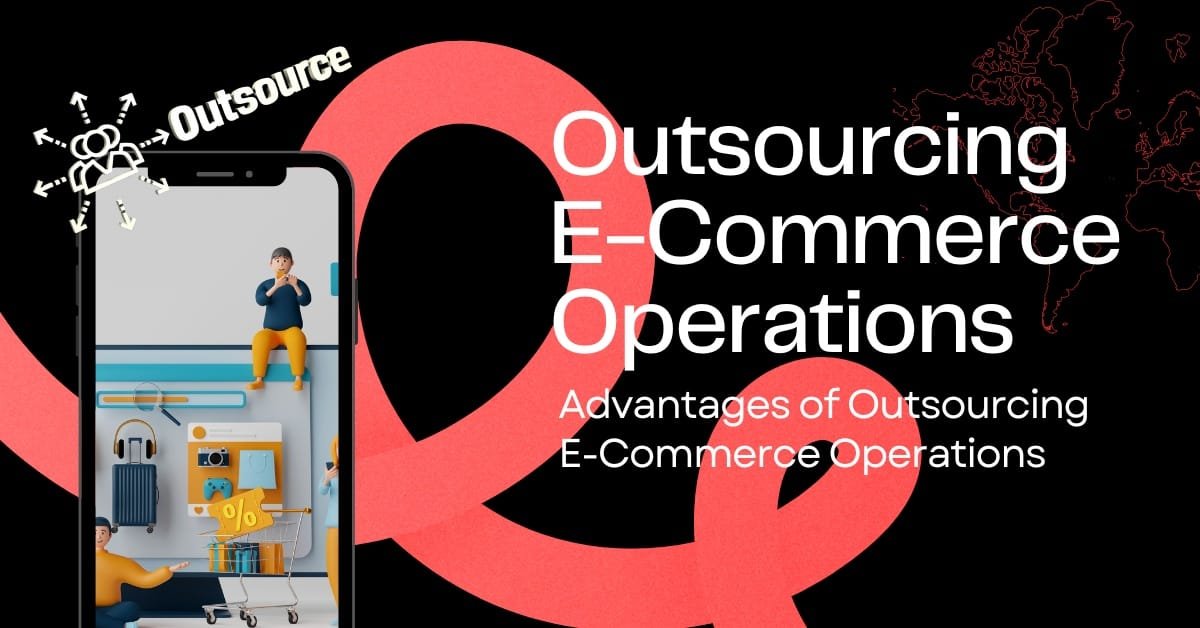Understanding Ecommerce Outsourcing
Ecommerce outsourcing refers to the practice of delegating specific business operations related to an online store to external service providers. In the rapidly evolving digital marketplace, this approach has become increasingly significant, allowing businesses to focus on core functions while benefiting from specialized expertise. As the ecommerce landscape becomes more competitive, outsourcing certain tasks can streamline operations and enhance overall efficiency.
Common tasks that online store owners often choose to outsource include inventory management, customer service, and marketing efforts. Inventory management, for instance, encompasses tracking stock levels, managing supplier relationships, and ensuring efficient order fulfillment. By outsourcing this function, businesses can leverage the expertise of third-party logistics (3PL) providers who possess the skills and technology to manage inventory effectively.
Customer service is another critical area where outsourcing offers substantial advantages and benefits. Many ecommerce businesses rely on external call centers or customer support agencies to handle inquiries, complaints, and returns. This ensures that customers receive prompt assistance, enhancing their overall shopping experience and potentially increasing customer loyalty.
Moreover, marketing tasks such as social media management, search engine optimization (SEO), and email campaigns can also be outsourced to digital marketing agencies. These specialized service providers are typically well-versed in current trends and effective strategies, which can help boost visibility and reach in the crowded online marketplace. By harnessing the expertise of professionals, ecommerce businesses can implement impactful marketing campaigns that resonate with their target audience.
Overall, understanding ecommerce outsourcing is vital for any online store aiming to optimize operations. By recognizing which tasks can be delegated, businesses can realize the advantages and benefits of outsourcing their ecommerce or online store management, ultimately leading to greater success and profitability.
Cost Efficiency and Increased Profit Margins
Outsourcing eCommerce or online store management has become a strategic choice for many businesses seeking to enhance their operational efficiency and financial viability. One of the most significant advantages and benefits of outsourcing your eCommerce operations lies in its capacity to achieve substantial cost savings. By outsourcing, businesses can avoid the considerable expenses associated with hiring full-time staff, which often include not only salaries but also employee benefits, payroll taxes, and training costs.
When managing an online store, companies typically face various operational overheads, ranging from technology maintenance to customer service. By delegating these responsibilities to external experts, businesses can drastically reduce their fixed costs. Outsourcing providers often leverage economies of scale and specialized knowledge, which can minimize expenditures that would otherwise burden an in-house team. This leads to lower operational costs and a more agile business structure, allowing companies to redirect their resources towards strategic growth initiatives.
Moreover, the financial advantages of outsourcing are not limited to cost reductions. The savings garnered from outsourcing management functions can significantly enhance profit margins. Instead of allocating funds to onboarding new employees or maintaining in-house operations, these resources can be reinvested back into the business, whether through marketing efforts, technology upgrades, or expansion into new markets. Increased profit margins, driven by a streamlined and cost-efficient operation, contribute to the overall financial health of the business.
In conclusion, the advantages and benefits of outsourcing your eCommerce or online store management extend well beyond mere cost reductions. By choosing to outsource, businesses not only achieve operational efficiency but also enhance their profitability, positioning themselves for sustainable growth in a competitive landscape.
Access to Expertise and Enhanced Scalability
Outsourcing your ecommerce or online store management offers numerous advantages, particularly in gaining access to specialized skills and expertise that may not be available in-house. Partnering with experienced professionals who possess the technical know-how in areas such as digital marketing, search engine optimization (SEO), and customer service significantly enhances the quality of service. These experts not only understand the intricate details of ecommerce best practices but also stay updated with the ever-evolving trends in the digital landscape, ensuring that businesses remain competitive.
Moreover, the digital marketplace is dynamic and constantly changing. By leveraging the services of an outsourcing partner, businesses can respond to these changes more swiftly and effectively. For instance, an outsourced team can conduct thorough market research, implement effective marketing campaigns, and utilize analytics tools to optimize performance in real time. This level of expertise is often challenging to provide internally, particularly for smaller businesses with limited resources. Thus, outsourcing empowers companies to access high-quality services that drive growth and customer engagement.
Another key advantage of outsourcing is enhanced scalability. As market demands fluctuate, businesses often find themselves needing to adjust their operational capacity without incurring excessive costs. With outsourcing, companies can efficiently scale their operations up or down based on demand. This flexibility allows businesses to concentrate on core activities while outsourcing partners manage expanded tasks, from inventory management to customer support, without the burden of hiring additional in-house staff. As a result, businesses can allocate resources strategically, enabling sustainable growth and service excellence. The advantages and benefits of outsourcing your ecommerce or online store management truly position companies to thrive in a competitive environment.
Focusing on Core Business Functions
In today’s fast-paced digital marketplace, business owners face numerous challenges that can divert their attention from core functions essential for growth. One notable strategy to address this challenge is outsourcing, particularly in the realm of ecommerce or online store management. By delegating specific operational tasks, business leaders can better align their efforts with strategic objectives, enhancing their focus on core competencies and growth initiatives.
Outsourcing various aspects of ecommerce management, such as inventory management, customer service, and order fulfillment, allows business owners to allocate their time and resources to areas that directly contribute to their competitive advantage. When teams are not mired in daily operational tasks, they can devote more energy to innovation, marketing strategies, and customer experience enhancements. This shift in focus is crucial for establishing a strong brand presence and cultivating customer loyalty.
For example, consider the role of customer service. By outsourcing this function, businesses can ensure they are providing timely and effective support without burdening their internal teams. This, in turn, enhances the customer experience—a key factor for ecommerce success. Similarly, hiring external specialists for website management or marketing can result in more effective campaign implementation, utilizing experienced professionals to drive traffic and engagement. Each of these tasks represents an opportunity to delegate operational responsibilities, freeing up owners and teams to innovate and strategize.
Ultimately, the advantages and benefits of outsourcing your ecommerce or online store management extend beyond mere efficiency. They empower business leaders to concentrate on growth-oriented initiatives, resulting in enhanced customer experiences and improved market positioning. By streamlining operations through outsourcing, businesses can better align their processes with their strategic vision, fostering an environment primed for success.


